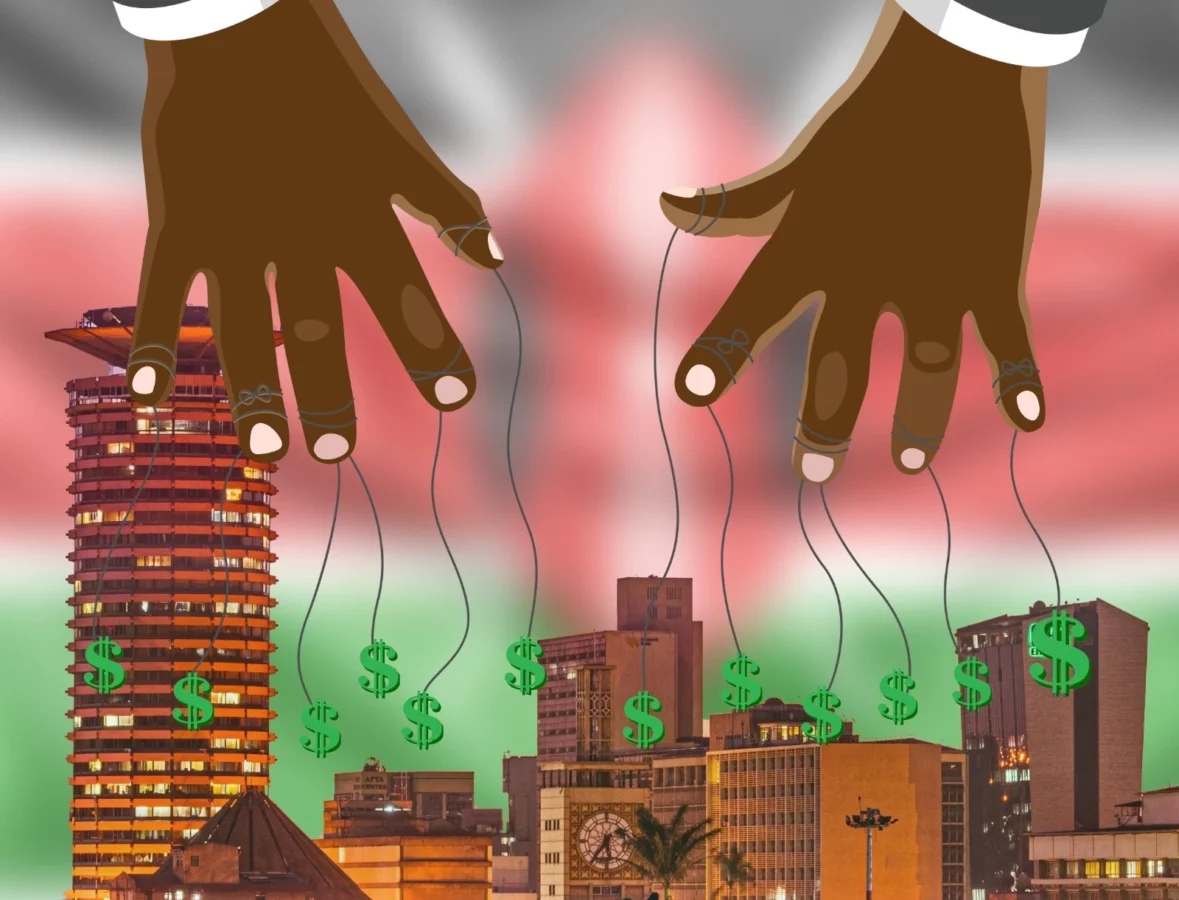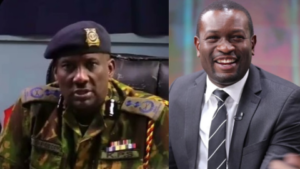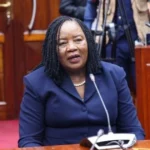Who Owns Kenya? They say that information is Power, so is it true that the one who owns or has possession of certain information is powerful? Is this the Case in Kenya?
Kenya’s media landscape is a vibrant and influential force within Africa, boasting a diverse array of print, broadcast, and digital platforms. Competing with global media houses like BBC, CNN, and Al Jazeera to hold sway over local audiences, Kenya’s media industry is a powerhouse.
Read also: The Dam Scandal: Failed Projects that left Kenya Drowning in Debt
Today in Who Owns Kenya, we delve into the handful of billionaires who control over 95% of what Kenyans read, watch, and listen to every day.
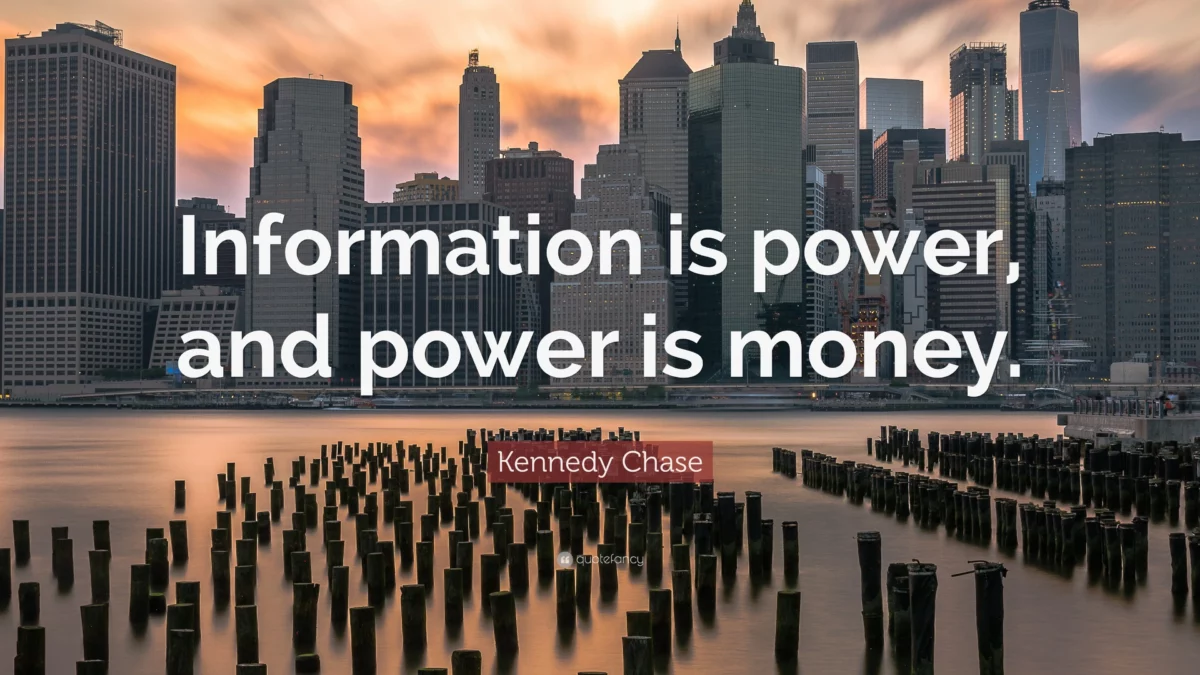
Legacy of Influence: Shaping Kenya Beyond its Media Landscape
In the realm of Kenya’s media industry, the Aga Khan, one person that many do not know very much beyond his entities like The Aga Khan Foundation, The Aga Khan University and Aga Khan Hospital, leaves an indelible mark on this country’s media space.
Yes, this billionaire’s name is also mentioned in the books of those few that drive information flow in Kenya. His legacy is not only about wealth but also about influence, power, and a commitment to development.
![His Royal Highness Prince Aga Khan of the Imāmate of the Nizari Ismāʿīli Shias. He is the current Aga Khan, Pictured in 2014.[Photo/Aga Khan Development Network]](https://news.switchtv.ke/wp-content/uploads/2023/09/His_Highness_the_Aga_Khan_15760993697_cropped-764x900.webp)
His Highness the Aga Khan, a name synonymous with profound influence and visionary leadership, was born on December 13, 1936, as Prince Karim Aga Khan, he ascended to become the 49th hereditary Imam of the global Shia Ismaili Muslim community at the tender age of 20.
Beyond his spiritual role, the Aga Khan’s life journey is a testament to his commitment to development, media, and his engagement with the political arena.
Aga Khan and Nation Media Group
The Aga Khan’s influence in Kenya’s media landscape dates back to 1959 when he founded the Nation Media Group (NMG). This conglomerate, operating in Kenya, Uganda, and Tanzania, has grown into East and Central Africa’s largest private media house, renowned for publications like the Daily Nation and The East African, which have played pivotal roles in shaping public discourse over the years.
In 1999, NMG expanded its reach by introducing NTV, a prominent news channel, and Easy FM, a notable radio station. These platforms have been instrumental in informing and educating Kenyans on a wide range of issues, further solidifying the Aga Khan’s enduring legacy in Kenya’s media landscape.

The Aga Khan’s ownership of NMG goes beyond symbolism. In December 2014, the Aga Khan Fund for Economic Development (AKFED) held a substantial 44.66% stake in NMG, granting him significant control over the media group. Although NMG is publicly listed on the Nairobi Stock Exchange, the Aga Khan’s influence through AKFED remains substantial.
His involvement in media is not solely driven by profit but is part of a broader vision for development, exemplified by his role as the founder and chairman of the Aga Khan Development Network (AKDN). This extensive network encompasses over 200 agencies and institutions, all dedicated to enhancing living conditions and opportunities for individuals, regardless of their faith or origin.
The following is a list of Aga Khan’s AKDN agencies:
In a world where media holds significant power in shaping opinions and societies, the Aga Khan’s legacy in Kenya serves as a testament to his commitment to information dissemination, development, and the betterment of humanity.
His ownership of NMG and his far-reaching initiatives through AKDN continue to make a lasting impact on Kenya’s media landscape and beyond. The Aga Khan’s legacy transcends mere media ownership; it embodies a profound vision for progress and prosperity.
Aga Khan’s net worth has been estimated at Ksh 2 Trillion. Forbes describes the Aga Khan as one of the world’s fifteen richest royals.
Read also: Who Owns Kenya: The Man Controlling Kenya’s Sugar Market
Samuel Kamau Macharia: The Media Messiah
Samuel Kamau Macharia, affectionately known as S. K. Macharia, emerges as a true pioneer in Kenya’s media industry. His academic achievements in accounting and finance laid the foundation for a career steeped in excellence, including key roles in government institutions like the Ministry of Local Government and the Agricultural Development Corporation.
Yet, it was in 1979 that Macharia made his most permanent mark by founding Madhupaper International Kenya Limited, a pioneering tissue production company that saved Kenya millions in foreign exchange. However, his legacy extends far beyond this venture.
![Samuel Kamau Macharia AKA S.K. Macharia. The guy behind Royal Media Services. [Photo/RMS]](https://news.switchtv.ke/wp-content/uploads/2023/09/machariask.webp)
Samuel Kamau Macharia’s most enduring contribution to Kenya’s landscape is the founding of Royal Media Services (RMS). Under his visionary leadership, RMS has evolved into a media powerhouse. The media conglomerate boasts a staggering 62.5% share of Kenya’s television market through Citizen TV, and its radio stations reach an astounding 80% of the country’s population.
Macharia’s passion for media extends beyond business; it is driven by a commitment to development and education. His philanthropic efforts have notably benefitted the University of Nairobi, where he has provided free live coverage of events, saving the institution millions.
![A signboard of the Royal Media Services Headquarters on Dennis Pritt Road, Nairobi.[Photo/ Getty Images ]](https://news.switchtv.ke/wp-content/uploads/2023/09/Royal-Media-Services-Citizen-TV.webp)
As a former member of the University’s Council, he streamlined procurement systems, further contributing to the university’s growth. Macharia’s legacy is a testament to what resilience, vision, and hard work can achieve in Kenya’s dynamic media industry.
The following is a list of S.K Macharia’s affiliations:
| Madhupaper | Macharia established Madhupaper in 1979 after resigning from the public service. The company was behind the production of Rosy tissue paper and had over 300 employees by 1985. |
| Royal Media Services | Macharia founded Citizen TV in 1990 as a private station. Its brands are Citizen TV, Inooro TV, Ramogi TV, Radio Citizen, Ramogi FM, Inooro FM, Musyi FM, Chamgei FM, Muuga FM, Egesa FM, Bahari FM, Mulembe FM, Wimwaro FM, Sulwe FM, Hot 96 and Vuuka FM. |
| Directline Insurance. | As at April 2023, Directline assets crossed the KSh7 billion mark in the year to December from KSh6. 239 billion previously with investment properties making the bulk of the assets at Sh2. 51 billion.( Source: Business Daily) |
| Serenity Media Productions Ltd. | |
| Big Five Conservancy. | |
| Bushfire Media Distributors. | |
| Harbour Capital Ltd | |
| Toi Redevelopment. |
In an industry where influence and impact are vital, Samuel Kamau Macharia’s journey from humble beginnings to media magnate is an inspiration.
According to Marcopolis Macharia is estimated to have a Networth of about Ksh 22.1Billion
Read also: Who Owns Kenya: The Silent Billionaires Behind Kenya’s Economic Growth
The Moi Family: Jack of all Trades
Kenya’s media landscape holds the imprint of the Moi family, former President Daniel Moi’s influential dynasty. With over 90% stake in the Standard Group, Kenya’s second-largest media house, they have left an mark on the industry.
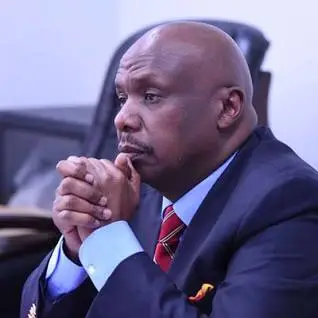
The Standard Group, the parent company of Kenya Television Network (KTN), Standard Newspaper, and a host of radio stations, including Radio Maisha, has been at the forefront of shaping public discourse. The Standard, one of Kenya’s largest newspapers, commands a 48% market share and stands as the country’s oldest newspaper.
Under the stewardship of Gideon Moi, this media conglomerate extends its influence across various platforms, including KTN, which is renowned for its authoritative news coverage, solidifying the Moi family’s prominence in Kenyan media.
![Who Owns Kenya: The Standard Group headquarters along Mombasa road, Nairobi. [Photo,Standard]](https://news.switchtv.ke/wp-content/uploads/2023/09/wxccnqfi47rovc62448c23730e5.webp)
The late President Daniel Moi’s family, along with close associates, has played a pivotal role in Kenya’s media landscape, accumulating substantial wealth over the years, with an estimated net worth surpassing Ksh 441.3Billion.
The Moi family’s influence is most pronounced in Nairobi, Western Kenya, and Mombasa, with The Standard holding a commanding 48% share of the newspaper market.
The following is a list of Moi family’s affiliations:
| Financial sector | The Moi’s either fully own or have shares in a number of banks and financial entities. Among them is Trans-National Bank, Equatorial Bank, First American Bank, Giro Bank ‚ Giant Forex Bureau, Equity Stock Brokers and Sovereign Group. |
| Media | The family owns Standard Group, the parent company to Kenya Television Network (KTN), Standard Newspaper and a number of radio stations, including Radio Maisha. Other subsidiaries include Rowland Printing and Baraza Limited. |
| Transport and logistics | In the transport sector, the family owns Siginon Group, East Africa’s largest integrated logistics services provider, which incorporates Siginon Global Logistics, Siginon Aviation and Siginon Freight Holdings. The over 30- year-old end-to-end logistics and air cargo solutions provider is based in Kenya with operations in Tanzania and Uganda. The family also own Kent Ship, Maritime, Eagle Airlines, Kenya Aerotech Ltd and Car Track Kenya Ltd and interests in CMC Holdings. It is also said to own part of the Kenya Airways fleet. |
| Real estate | In real estate, the Moi’s are associated with Sielei Properties Ltd, Chester House, Mugoya construction, Regent Management (believed to be about 200 houses), Paradise Holdings, Homestead Enterprises , Gateway Properties and Courtyard Property Investment. The family also owns homes in Lavington House, Karen Residence, Nakuru Residence. It owns several unidentified properties in the United States of America and has property interests in South Africa. |
| Agri-business | The family has huge investments in agri-business, with entities such as the Sasine Group of farms, Fresh Produce Ltd, Chemusian Company, Sian roses, one of the leading fresh roses exporter, and Kiptagich Tea Estate. The family also owns a Tobacco Farm in Malawi (100%). |
| Telecommunication | The family has invested in the telecommunication sector, with interests in Chesco Ltd, Cable Wireless and sizable shares in Safaricom Kenya. |
| Education | Some of the common institutions owned by the Moi family include Nairobi-based Sunshine National School, Kabarak University and Kabarak High School, Sacho High School, Moi Educational Centre and the Moi Africa Institute Kabarnet Gardens, with interests in many other international schools and local institutions. |
| Hotel and tourism | In the hospitality industry, huge investments lie in hotels, among them Sheraton Group (Sheraton Holding), InterContinental Hotels and Safariland Club, with other investments spreading across the industry. |
| General business and others | Other entities owned or with shareholding of the Mois are Taurino Enterprises, Giant Holdings Ltd, Revak Ltd, Sudbury Ltd, Sudbury Investments, Westfield International Ltd, Hampstead Enterprises, Metipso Services Ltd, Maternity Shop, The Duty Free Company and Eveready Company. The family also owns Tiger Farm Ltd, First Force Security Company, Hahuru Investors, Concord Holdings, National Milling Company and Ectar Kenya Ltd among others. On land, the Moi’s own hundreds of acres of parcels in different parts of the country with a value running into billions of shillings. |
As a result, the Moi legacy continues to resonate in Kenyan media, shaping public opinion and discourse.
According to Business Insider Africa, Moi’s Family Networth is estimated to be of around Ksh 441.3 Billion making them top the 30 Richest People In Kenya
Read also: Who Owns Kenya: The Billionaire Who Never had a Phone
The Self-Proclaimed Hustler
Mediamax Network Limited, commonly referred to as Mediamax, is a prominent Kenyan media conglomerate. It encompasses a diverse range of media outlets, including television, radio, and print publications. Some of its well-known assets include K24 TV, Milele FM, Kameme TV, and People Daily newspaper.
Mediamax plays a significant role in Kenya’s media landscape, providing news, entertainment, and information to a broad audience. It has gained recognition for its influence on public opinion and its contribution to the country’s media industry.
![His Excellency Dr. William Samoei Ruto, C.G.H., President of the Republic of Kenya and Commander-in-Chief of the Defense Forces.[Photo/Courtesy] Who Owns Kenya](https://news.switchtv.ke/wp-content/uploads/2023/09/William-Ruto-press-conference-kenya-1200x812.webp)
President William Ruto has significantly expanded his influence in Kenya’s media landscape by acquiring a controlling stake in Mediamax Network Ltd. Initially owning 50% of the company, he further boosted his share to 67%, firmly establishing his presence in the media industry.
This strategic move aligned with his preparations for the last 2022 presidential elections, recognizing the pivotal role a friendly media can play in shaping public opinion.
Mediamax Network Ltd encompasses various media outlets, including K24 TV, Milele FM, and Kameme TV, making it a formidable player in Kenya’s media sector.
![DSM Place Mediamax headquarters [PHOTO|COURTESY] Who Owns Kenya](https://news.switchtv.ke/wp-content/uploads/2023/09/126.webp)
As Ruto continues to consolidate his media holdings, the landscape of Kenya’s media and its impact on political discourse are expected to undergo significant changes in the coming years.
It is believed that the self proclaimed hustler owns the following institutions:
| Sentrim 680 Hotel | The hotel located in Nairobi is estimated to be worth Ksh 3 Billion. A 5min walk from KICC. |
| Weston Hotel | Worth over Ksh. 2.5 Billion. a 4 Star Hotel with 120 rooms located next to Wilson airport. |
| Residential Property in Jogoo road | Estimated to be worth Ksh. 1.6 Billion. |
| Orterter Enterprises Limited | Worth Ksh. 2.5 Billion. |
| Osere flats in Rongai | Worth Ksh. 500 Million. |
| Major Amaco Insurance shareholder | Ksh 1 Billion. |
| Poultry Business at Turbo home | estimated to be worth Ksh 750 Million |
| Karen Home | worth 0.5 billion |
| 5 Choppers | worth Ksh 1.3 Billion |
| Mediamax Limited | Major Shareholder |
| Uasin Gishu Homestead | Estimated to be Ksh 1.3 Billion |
| Oseng Property Limited | Estimated to be worth Ksh 1 Billion |
| Dolphine Hotel in Mombasa | Worth Ksh 600 Million |
Do these People Really Control how much Information Kenyans Perceive?
In a country of over 50 million people, it’s remarkable that a handful of billionaires wield such power in shaping the nation’s information flow.
As we continue our series on “Who Owns Kenya,” it becomes evident that these media moguls have an outsized impact on the country’s politics, culture, and society.
Their control over the airwaves and printing presses makes them key players in Kenya’s ongoing narrative.
Subscribe to Switch TV
In the words of media historian Mark Johnson, “Understanding the individuals who control the media is vital for comprehending Kenya’s media landscape and the forces that shape public opinion.”
These billionaires are not just media owners; they are the gatekeepers of information in Kenya.


